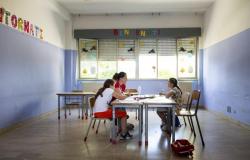The pandemic caused by Covid-19 represents a constant threat to global health. However, understanding the early responses of human cells to this disease remains an unknown with limited knowledge. That is why a recent study, published in the journal Nature, reveals results to understand the reasons that lead some people not to develop the disease caused by Covid-19.
The research team for this study is made up of scientists from Imperial College, University College London (UCL) and the Wellcome Trust Sanger Institute, who have dared to take a new step forward in this global health scenario.
Immune response of people who do not develop SARS-CoV-2 infection
To obtain specific results, the research team included 36 healthy adults who were voluntarily administered the SARS-CoV-2 virus nasally. The main objective of the study was to analyze immune responses – through the sequencing of single cells – carried out by the organism of these healthy adults against the virus.
To trace the entire course of the infection, 16 healthy adult volunteers underwent detailed monitoring of their blood, immune cell activity, and nasal lining.
It is important to remember that the Adult volunteers who immediately cleared the virus were able to develop an innate immune response. The research team associated this response with HLS-DQA2, a gene that helps people before they are exposed to Covid-19, preventing the infection from lasting longer.
Factor that allows the development of SARS-CoV-2 infection and the valuable contribution of this study
The opposite occurred in the bodies of six adult volunteers who developed SARS-CoV-2 infection. In this direction, their immune response was rapid in the blood, but very slow in the nose. In this way, the virus was able to “nest” in this respiratory organ. The research group emphasizes that their study represents an invaluable contribution to the most complete and detailed description obtained since the beginning of the SARS-CoV-2 infection.
The findings discovered can also be applied to any other infectious disease.as they reveal new responses related to the human body’s resistance to some diseases that continue over time.
Reference to the news:
Lindeboom, R.G.H., Worlock, K.B., Dratva, L.M. et al. Human SARS-CoV-2 challenge uncovers local and systemic response dynamics. Nature (2024).






